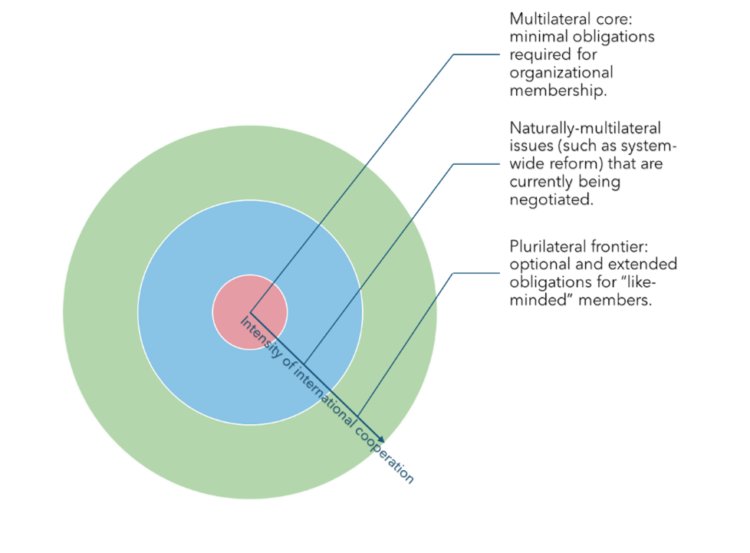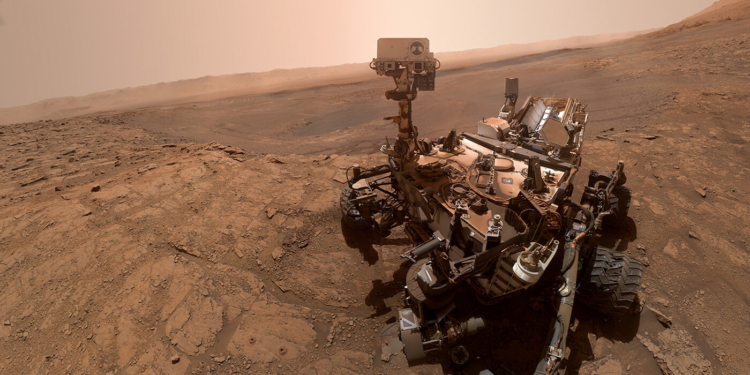Image: Ngozi Okonjo-Iweala takes over as new WTO Director-General, March 2021. Source: WTO.
AS OF THIS WEEK, Dr Ngozi Okonjo-Iweala stands at the helm of the World Trade Organization (WTO), an international institution charged of regulating trade flows across the world. It is a historic moment, for she is the organization’s first African and first woman to ever be appointed Director-General.
“I take the reins of the WTO at a time of great uncertainty,” remarked Dr Okonjo-Iweala after the election win – an understatement, for some. Too weak, too powerful, too unfair, too indulging: these are but some of the accusations that have been directed at the WTO over the past twenty years.
Indeed, since its creation in 1995, the WTO has often made headlines in the press, but rarely under a positive light. Worse, at the heart of world governance, this institution is also affected by all the flaws of a multilateral system that, as of 2020, appears helpless in responding to the most urgent needs of the global population.
Among the various challenges facing the WTO now, the rise of plurilateralism is of particular interest. Simply put, decisions at the WTO are traditionally taken by consensus. But consensus has been hard to achieve lately. For instance, it took six months for all member countries to agree on endorsing Dr Okonjo-Iweala for the top job. So, some members have decided to go plurilateral.
Plurilateral decision-making does not include the 164-country strong membership base of the WTO, which is why it may be described as “more flexible” than the path of consensus. So ,since 2017, instead of waiting around for everyone’s agreement, self-proclaimed “pragmatic” member countries (such as the United States and the European Union, but also Brazil and China) have formed such less-than-multilateral instances of negotiation within the WTO.
Unsurprisingly, then, plurilateralism is considered betrayal by other member countries, such as India and South Africa, who would rather conclude the Doha Development Agenda (DDA) before engaging new themes at the WTO. The DDA is a negotiation package comprising various issues, mainly related to agriculture and economic development. Some say it embodies the poorer countries’ best hope to enhance their own well-being and development through trade. As it is yet unclear whether plurilateral processes contribute to the DDA, they are perceived as illegitimate by several member countries.
Suffice to say that the WTO is dysfunctional, as an instance for international cooperation. More crucially, one might wonder how the WTO itself, as an organization, fits into this labyrinthine sight of conflicting interests. But is the picture so gloom, as some doomsayers claim? Is the WTO at risk of disappearing forever?
No. In fact, based on my own empirical research, I will argue that the WTO is as strong as ever. Consider this: How can we conceive of a new system of international cooperation in which consensus is the exception, and conflict the norm? After all, the notion that conflict and cooperation may coexist is well established within the social sciences. For example, one could refer to prominent sociologist Georg Simmel, for whom conflict and cooperation are two faces of the same coin.
Bluntly put, the rise of plurilateral negotiations in the WTO could very well constitute such a novel system of international cooperation. Relying on a politics of speed, the system organizes each member country’s degree of cooperation across concentric circles. From its multilateral core, the WTO thus extends plurilaterally towards untamed frontiers of the international trading system.
By integrating new issues into its ever-enlarged policy-area, the WTO diversifies its range of action while delegating to its own member countries the tough task of resolving emerging contradictions. The latter is achieved by making system-wide reform itself an object of diplomacy and negotiation – talks of “reform” abound within the organization’s rooms and hallways.
Naturally, plurilateralism’s ambiguous role within the WTO must be understood from the standpoint its intricate relationship with the well-established multilateral processes. After all, plurilateralism has built its organizational legitimacy upon the promise to contribute towards advancing multilateral agendas. Not to mention, some diplomatic strategies within plurilateral circles are founded on the very idea of “multilateralizing” by converting the so-called “recalcitrant” member countries.
If there remain multilateral issues to discuss at the WTO, such as reform, then there shall be negotiation pathways binding the plurilateral and multilateral instances of the organization. Should plurilateralism become the norm, rather than 2017’s exception, then the duty to better understand its practical implications for international organization falls upon all our shoulders.
Indeed, it is not yet certain whether this new configuration will be able to alter the current state of the WTO’s multilateral negotiating forum, which is widely perceived as paralysed. While the rise of plurilateral negotiations in the WTO contributes to the formation of a novel system of cooperation, its purpose remains unclear. Do we have there a mechanism for the promotion of global economic development?
In a significant way, one could argue that only tangible progress in the DDA would render it possible to say that the plurilateral turn of the WTO is truly pro-development: insofar as the DDA concentrates many of the economic interests of the poorest countries on the planet, and as plurilateralism bases part of its legitimacy on the oft-repeated promise to contribute to multilateral negotiations.
In the light of these elements, the election of a woman from Niger as head of the WTO appears opportune. Clearly, in the current scenario, Africa is emerging as a pivotal bloc in this now-equivocal organization. Before it can reconcile its member’s increasingly disparate interests, the WTO will have to face a Cornelian choice between its past traditions and the uncertain promises of plurilateralism.
Author
-
Murillo Salvador is chief editor at International-Organization.Com. In the past, he has worked at the Organisation for Economic Co-operation and Development, and at the Mission of Brazil to the World Trade Organization. He currently lives in Geneva.
View all posts
Related Articles
June 7, 2021
The United Nations’ ‘Wild West’ of Artificial Intelligence
For an organization like the United Nations, artificial intelligence can have promising applications in the field. Its usage should follow strict guidelines that have yet to see the light of day.
May 31, 2021
Who Owns Space’s Natural Resources?
Space governance is emerging as a major issue of our time. In-between old multilateral rules and new bilateral developments, international cooperation on space has had a hard time materializing.
May 24, 2021
Covid-19 and the End of “Global Health”
Covid-19 has unveiled big problems with the world's handling of infectious disease. As a global problem, it has not prompted a global response. This failure of global health should not be repeated.



